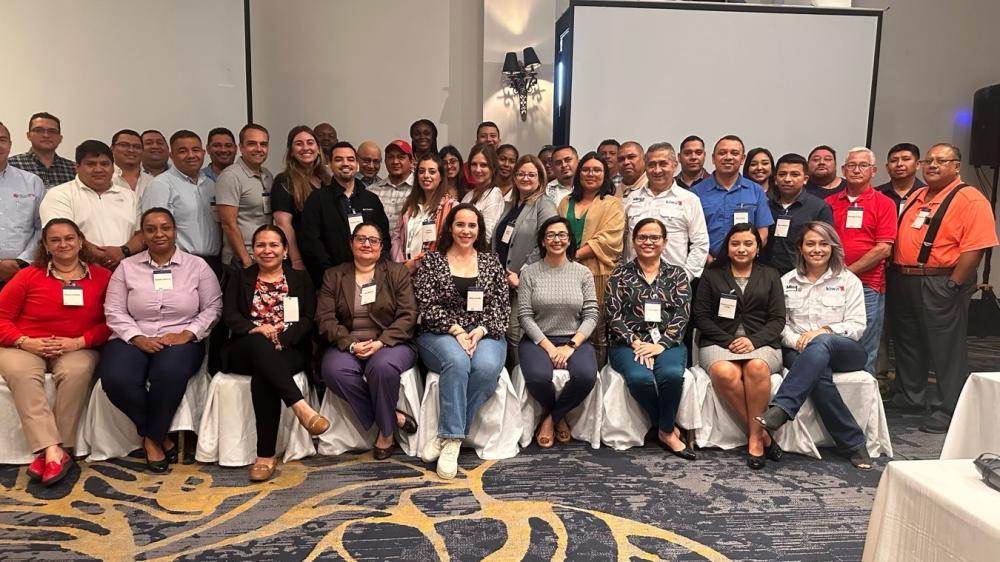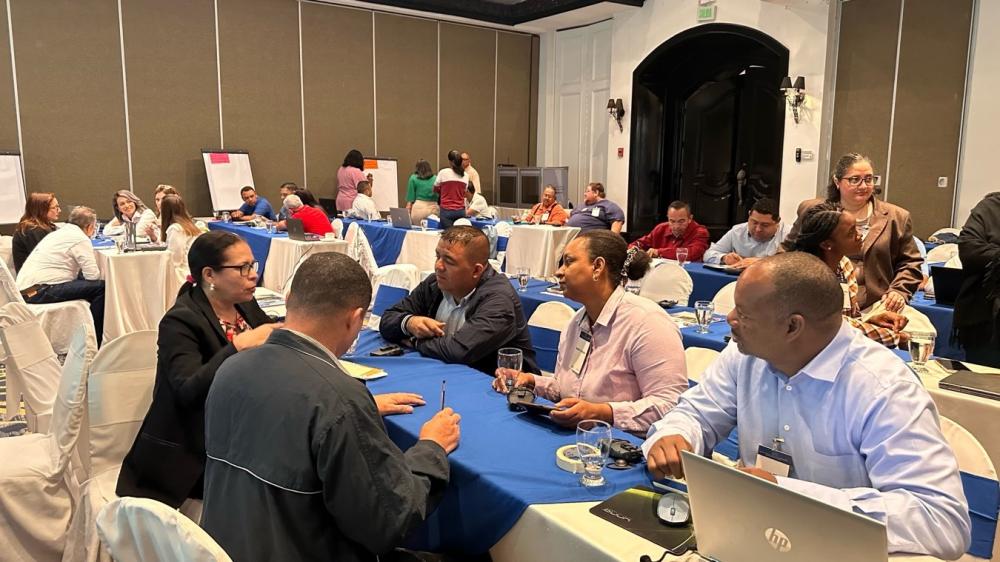IICA promotes a voluntary food safety and quality assurance tool in Honduras and Belize designed to improve risk control

Tegucigalpa, 19 July 2024 (IICA). To promote public-private collaboration in carrying out audits in the production sector and demonstrate the benefits to producers, the Inter-American Institute for Cooperation on Agriculture (IICA) organized a workshop in Honduras that brought together key actors in agricultural and food safety assurance systems from the host country and Belize.
Held in Tegucigalpa, the event brought together more than 55 representatives from the fresh vegetable, farmed shrimp, cereal, and other chains. The participants included representatives of the Belize Bureau of Standards (BBS), the Honduran Standards Organization (OHN), the Global Food Safety Initiative (GFSI), local GFSI groups such as Mexico’s Global Standards, Argentina’s La Anónima, Colombia’s MasControl Consultores, and certification bodies such as Kiwa and LSQA.
The workshop is part of the project “Piloting the use of Voluntary Third-party Assurance Programs in Central America (Belize and Honduras) to improve food safety for public health and trade,” implemented by IICA with funding from the Standards and Trade Development Facility (STDF).
A voluntary third-party assurance (vTPA) program is a tool that food industry operators use to guarantee food safety. These programs are optional but recommended, and involve an external independent entity that reviews and certifies the controls and procedures that operators employ in their establishments. The objective is to reduce risks in the supply chain and ensure that foodstuffs comply with safety regulations.
The aim of the IICA project is to enable Honduras’ National Agrifood Health and Safety Service (SENASA) and the Belize Agricultural Health Authority (BAHA) to optimize their controls and reduce the number of duplicated inspections in certified establishments.
Initiatives of this kind strengthen risk-based inspection models, focusing as they do on aspects such as the definition of the frequency of inspections and the integration of vTPA into the regulatory setup.

The workshop involved discussions on the tool’s integration into national food control systems and the adoption of risk-based inspection models, as well as private sector perspectives, the implementation of certification schemes, and the importance of vTPA for aquaculture product safety.
The event included exercises and practical field visits at Honduproduce, a business based in Comayagua, with a simulated audit approach facilitated by the certifier Kiwa and involving inspectors from SENASA, BAHA, BBS and the Ministry of Health and Wellness of Belize.
Key project participants took part, including Mirian Bueno, Technical Director of Food Safety at SENASA; Kenrick Witty, Deputy Technical Director and Animal and Plant Health Contact Point at the Belize Agricultural Health Authority (BAHA); Fernando Sampedro, from the University of Minnesota; and Daniela Apú, an IICA specialist with the Agricultural Health, Safety and Quality (AHFS) program. The IICA Delegation in Honduras provided logistical support.
The workshop provided a useful opportunity to strengthen food safety systems through a collaborative commitment with sector operators, promoting food safety standards in the region.
More information:
Institutional Communication Division.
comunicacion.institucional@iica.int